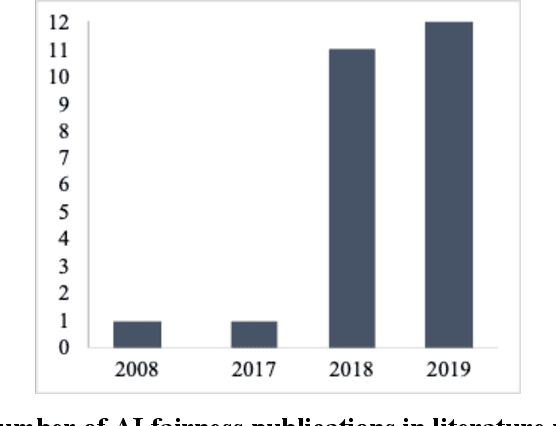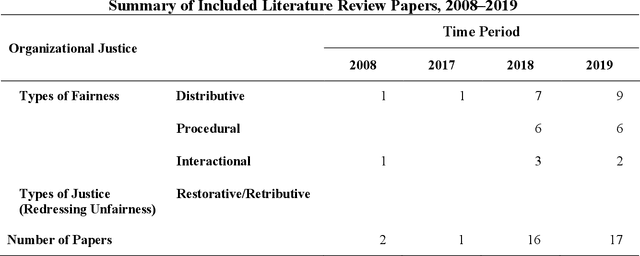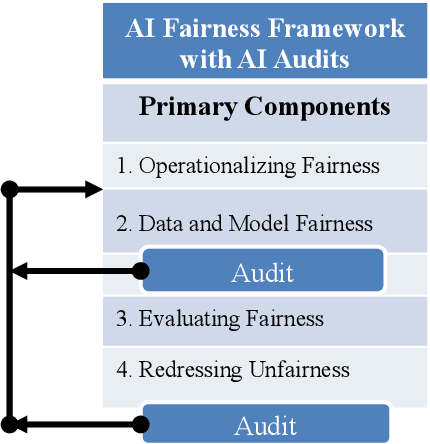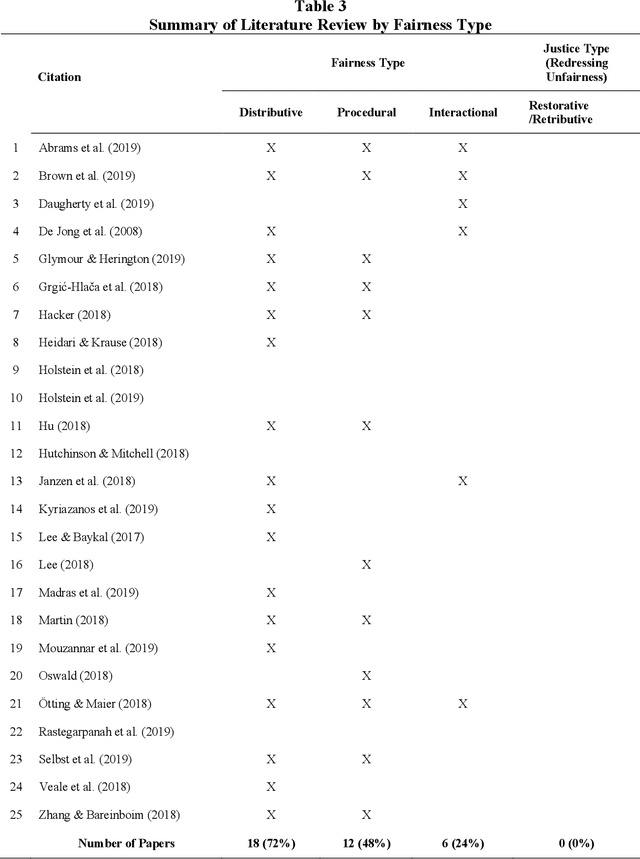Casey Pierce
Designing Fair AI for Managing Employees in Organizations: A Review, Critique, and Design Agenda
Feb 20, 2020



Abstract:Organizations are rapidly deploying artificial intelligence (AI) systems to manage their workers. However, AI has been found at times to be unfair to workers. Unfairness toward workers has been associated with decreased worker effort and increased worker turnover. To avoid such problems, AI systems must be designed to support fairness and redress instances of unfairness. Despite the attention related to AI unfairness, there has not been a theoretical and systematic approach to developing a design agenda. This paper addresses the issue in three ways. First, we introduce the organizational justice theory, three different fairness types (distributive, procedural, interactional), and the frameworks for redressing instances of unfairness (retributive justice, restorative justice). Second, we review the design literature that specifically focuses on issues of AI fairness in organizations. Third, we propose a design agenda for AI fairness in organizations that applies each of the fairness types to organizational scenarios. Then, the paper concludes with implications for future research.
 Add to Chrome
Add to Chrome Add to Firefox
Add to Firefox Add to Edge
Add to Edge